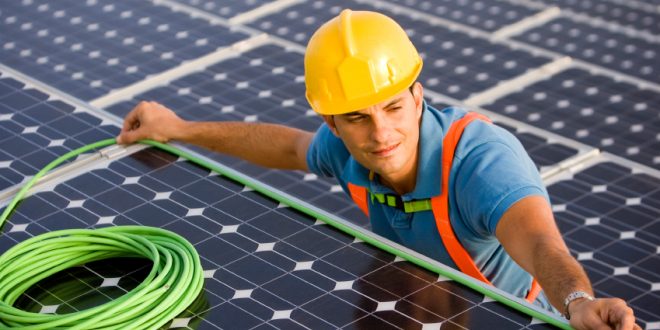Great Reasons to Use Solar Power and Solar Lighting
Global environmental awareness is at an all-time high, as citizens and governments around the world are taking steps to create a more eco-friendly way of life to preserve our planet for future generations. People often want to participate in this green way of life but are unsure how to begin. Simple changes, such as recycling more or using the power of natural light to save electricity, are great ways to jump into the green movement, but there are even more ways to reduce your carbon footprint. Using the sun’s energy through solar technology is a good way of going green. Adding outdoor solar lights are an easy way to lower your energy usage without sacrificing anything. Solar power, which involves harnessing the sun’s energy through solar panels to create electricity, is a green way of generating electricity but does come with a high barrier to entry. There are many reasons to use solar power and solar lighting, but there are some things you need to know before jumping in.
Solar Lights
Solar lights come in many different shapes and sizes, but most solar lights work the same way. Outdoor solar lights are typically small lamps atop a stake you push into the ground with a solar panel on top of the unit. This type of solar light is designed to be pushed into soft ground like grass or soil making them especially popular for lighting walkways through yards, gardens, and other unpaved areas. The solar panel on top of the light functions just like a larger solar panel; the photovoltaic cells within the panel gather sunlight and convert it to electricity with the help of solar fuses.
The solar panel is solely responsible for generating enough power to turn on the light bulb, as solar lights cannot be plugged in. This means if the panel doesn’t absorb enough sun during the day, the light won’t shine long that night. However, each solar light has a different battery size which also limits how long the light will be on at night. When purchasing solar lights, the packaging should say how long the light will shine. Some solar lights have a max charge of 4 hours while others can run for 12.
Solar lights essentially provide free light since they use an unlimited power source – the sun. This helps offset the high sticker price of solar lights. Solar lights are an upfront investment that slowly pays for themselves over years of use. Wired lights that need to be plugged in cost less upfront, but they contribute to your monthly energy bill where solar lights cost more upfront but do not add to your bill.
Solar Power
Homeowners and business owners alike are realizing how impactful solar power can be with solar panels being the most common usage of solar power. Adding even a few solar panels to your home or business can put a dent in your monthly energy bill while helping the environment. Seriously committing to solar energy can eliminate your monthly energy bill with the potential to turn a profit by selling any excess electricity your solar panels generate. Solar panels are a simple and attractive idea but can be more complicated in practice.
Solar panels are expensive, even though solar technology has become significantly cheaper in recent years. The cost of installing an average-sized solar panel system in the US ranges from $10,000 to $15,000 after tax credits, according to Energy Sage. The exact price of installing solar panels varies by state and country with some locations offering more tax credits than others. Solar panels may cost a significant amount upfront, but the system will pay for itself over time.
Solar panels pay for themselves the same way solar lights do, in savings. Buying solar panels means you don’t have to spend as much money on bills from that point onward. Solar panels generate electricity by reducing the amount of grid electricity you use, which lowers your energy bill. In ideal situations, solar panels can generate enough electricity to eliminate your monthly energy bill and generate excess electricity you can sell back to the power grid.
The average solar panel system is paid off in 7-15 years but, solar panels last 25 to 35 years, meaning you can reap the benefits of solar power for a significant amount of time. However, due to the upfront cost and long return on investment time, if you plan on moving in the next 10 years, installing solar panels is not recommended. Homes with solar panels sell for more, but generally not enough to cover the cost of installing the panels in the first place.
Solar lights are an easy way to go green and save money without sacrificing anything. Use outdoor solar lights to light paths at night while not adding to your energy bill. Solar panels take the same concept and widen its reach. They generate electricity for your entire house and reduce how much grid electricity you use, which lowers or eliminates your monthly energy bill. Solar power is becoming commonplace as more people see the benefits of adding solar panels and lights to their homes.



